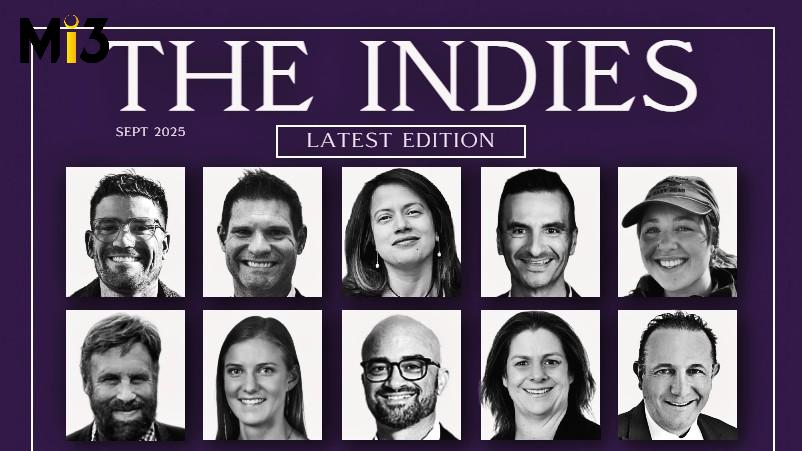Metricon marketer Angela Purdy jumped from automotive into housebuilding just before the Covid bubble exploded, almost taking the firm down with it. Amid the rebuild, the creaking CRM – which risked data leakage and all the associated penalties if used to share data with agencies – had to go, as did old school multichannel marketing, flipped for first-party omnichannel methods that meant it could link ads to leads to physical show home visits. Less than two years on, Metricon and Starcom, with help from The Trade Desk, have just won the MFA’s award for best use of data. Leads and conversions are soaring, costs are down and double duty “brand-tail” ads co-funded by 18 suppliers can be mapped to in-store visits. Plus they’ve hit a magic formula to create a lead – seven touch-points – while clocking what actually contributes to a conversion versus last click shenanigans. “It’s given value in channels that maybe I wouldn’t have thought about before,” says Purdy. The sales team – and those of supplier partners like Dulux and Reece – now know what marketing investment is delivering. “The conversation has completely changed for our business.” The Trade Desk boss James Bayes says “it feels crazy” that brands would do anything but omnichannel, given tech and scale is now available – and media metrics no longer cut it.
Author: admin
PayPal Australia goes live with Will Ferrell campaign
PayPal Australia has unveiled its most extensive consumer campaign to date, enlisting the talents of actor and comedian Will Ferrell. The campaign is designed to promote PayPal Pay in 4, a buy now, pay later (BNPL) service.
Victoria’s Secret unveils local e-comm platform with CGI campaign
Victoria’s Secret is expanding its Australian footprint with the launch of a new e-commerce platform. The launch is supported by a CGI campaign that showcases iconic Victoria’s Secret products against the backdrop of landmarks in Sydney, Melbourne, and Perth.
Upfronts: What Mastercard, Mercedes, Harley Davidson, Guzman y Gomez and Coinbase don’t want other brands to know: 10-plus Australian independent publishers tapping deep niches, connection and know-how – but no indie agencies
Smaller, higher touch niche publishers are theoretically prime targets for large blue chip brands chasing authenticity, trust and community connection. So it was telling that Mastercard, Uber and Hello Fresh were among the handful of brands that sent marketers to connect with independent publishers via a speed dating format representing millions of Australians at the Digital Publishers Alliance upfront last week. Holdcos often get fully-earned stick from Mi3, but (bar Dentsu) they were out in numbers. Not that it really matters to the publishers – most are going direct for the bulk of their business. But for marketers seeking engagement, agility and a hands-on execution that delivers connection beyond reach, here are a dozen or so of Australia’s independent publishers that Mi3 met on its speed dates that claim big numbers. Some rival, even top, mainstream mastheads and streamers with crazy engagement rates and a proximity to their market that platform players definitely cannot match. For Mi3’s (independent) money, they’re likely worth a punt – and perhaps a chunk of marketers’ experimental budgets that typically go to the shiny and new.
Australian marketers brace for fivefold surge in content demand by 2027
Adobe’s recent research reveals that Australian marketing teams are anticipating a significant increase in content demand, with expectations of more than a fivefold growth by 2027.
Cubery unveils Australia’s most iconic childhood ads: Vegemite tops the list
Cubery, a consultancy specialising in creative effectiveness, has conducted a nationwide survey to identify Australia’s 12 most iconic childhood advertisements.
Scorched search: Why AI requires a rapid content rewrite – and how it happened so quickly, the experts never saw it coming
Just before Covid, WPP began a 10-year longitudinal study seeking insights from some of advertising’s smartest minds about what was coming down the track. AI barely warranted a footnote. It’s now aiming a wrecking ball at what has been the most reliable, forecastable line item in the marketing budget: search. Both B2C and B2B marketers are feeling the tremors and early but sharp declines in click throughs. While industry scrambles to shore up visibility in a world of zero-click traffic, a bigger shift is looming on the horizon: Bot-on-bot commerce – a future where machines act, negotiate and triage on behalf of consumers. Some like Deloitte and Salesforce see a $200bn-plus opportunity. Others see the bots fighting other bots to shield us from the incoming tsunami. Others think the whole thing is more fiction than science. Either way, marketers still framing AI as a future problem risk missing the moment, warns Mindshare CEO Maria Grivas.
Dulux revives ‘Jelly Bean’ campaign
Dulux is bringing back its Jelly Bean campaign, which was first launched in 1991, by giving away a can of jelly beans with every purchase of an eight-litre tin of paint.
Ogilvy unveils ‘The 2025 Ogilvy APAC Book Of Growth’ for marketers
Ogilvy has launched ‘The 2025 Ogilvy APAC Book of Growth’, a publication designed to assist marketers across APAC to refine their brand strategies.
Virgin Australia wins Roy Morgan trusted brand award for third year
Virgin Australia has been named the ‘Most Trusted Travel & Tourism Brand’ in the 2025 Roy Morgan Trusted Brand Awards, marking the third consecutive year the airline has received the accolade.










